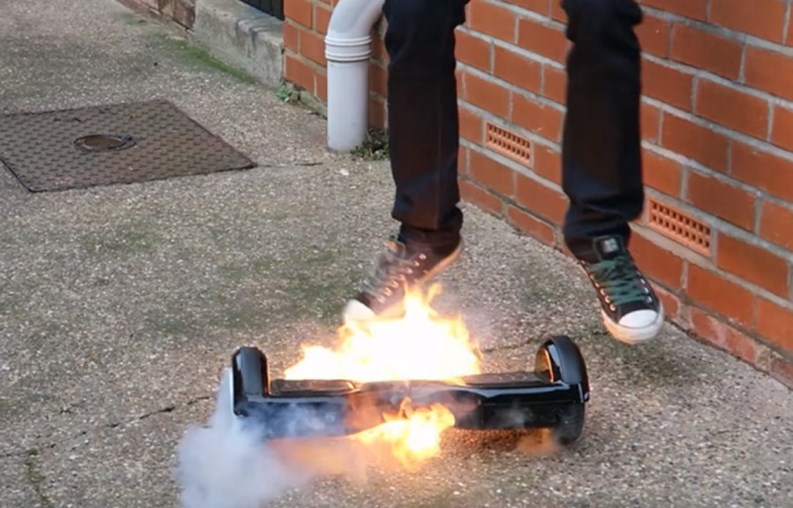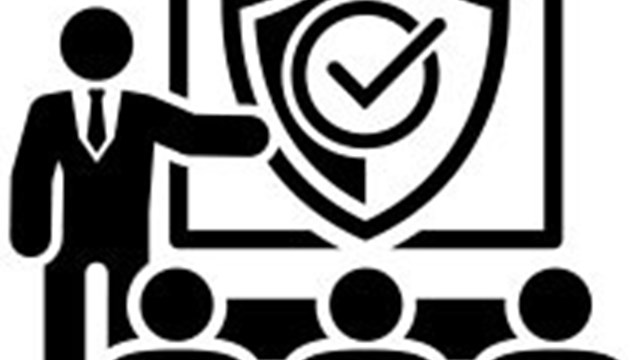On the heels of a nationwide recall of a half-million hoverboards by the U.S. Consumer Product Safety Commission (CPSC) due to a fire risk, co-ops, condos and HOAs are warily looking at ways in which to ban the usage of these two-wheeled personal mobility devices on their properties.
The so-called device, which mimicked an invention that Michael J. Fox’s character Marty McFly rode in the movie Back to the Future II, was one of the hottest gift items before questions arose about their safety.
Sporadic Bans
According to the CPSC, there have been nearly 100 reports of the battery packs in the self-balancing scooters and hoverboards “overheating, sparking, smoking, catching fire and/or exploding, including reports of burn injuries and property damage.” The recall involves 10 firms that manufacture and sell the devices.
In March, outside of Seattle, a condominium unit was damaged when a hoverboard was left unattended while charging. In April, three apartments in Orlando, Florida were damaged when a hoverboard sparked a fire also while being charged. And in May, a hoverboard exploded in a bedroom and caught fire in a Boston apartment building, causing $100,000 worth of damage and forcing nearby residents out of their homes.
In addition to all major airlines, several local colleges, and countries from the UK to Denmark to the United Arab Emirates, New York City officials have banned the devices and the Metropolitan Transportation Authority (MTA) has prohibited their possession and usage on all subways, buses and railroads. People caught riding the wheeled devices can be fined up to $200, officials say. In Massachusetts, the Boston City Council has banned the devices on public property and that city’s transportation authority also prohibited them on its trains, buses and stations. A number of Boston colleges and universities have banned hoverboards as well, including MIT, Emerson College, Boston University and Boston College.
Several New York City buildings have banned the devices and imposed rules against them, according to Dana Collins, vice president of marketing and communications for FirstService Residential New York. A 360-unit co-op in Midtown East recently added a house rule “that strictly prohibits hoverboards. They are not even permitted in the building,” said Collins.
And a 54-unit co-op brownstone development was so concerned about the potential fire risk and the fact that New York City has banned them, Collins said, that they adopted a special house rule. The board inserted this amendment into the house rule section of their bylaws: “Hazardous Devices: No shareholder may use, store or permit the use of any material, device, apparatus, vehicle or other item which is considered highly combustible and/or poses a considerable risk of fire or other hazard or which has not met federal safety standards. This includes but is not limited to the use of hoverboards and any other motorized leisure vehicle or product which has been banned entirely or where use has been restricted under local jurisdictions.”
Advice for Boards and Associations
Lawyers at a Michigan condo blog recommend some tips for amending your bylaws to address the hoverboard risk. It is unlikely that any laws exist on the books since this is such a new product. In assessing its own bylaws and rules and regulations, an association should take into account several possible alternatives, including:
The outright prohibition of hoverboards on condominium property;
A requirement that any hoverboards on condominium property comply with all Underwriters Laboratory (UL) product safety requirements, including UL 2272 and UN/DOT 38.3;
The prohibition of the storage of a hoverboard within a unit;
Adopting limitations on charging, such as requiring someone to be physically present while charging, prohibiting overnight charging, requiring that the hoverboard be charged no less than an hour after use, and/or requiring that hoverboards be charged in an open area away from combustible material; or
Requiring hoverboard operators/owners to indemnify the association in case of loss due to hoverboard storage or use.
The lawyers caution that in drafting any rules, associations should be wary so they do not violate the federal Fair Housing Act (FHA), which prohibits discrimination against families, children and various protected classes. In part, the FHA prohibits discrimination against families with children. Section 3604(b) of the FHA makes it unlawful to “discriminate against any person in the terms, conditions, or privileges of sale or rental of a dwelling, or in the provision of service or facilities in connection therewith, because of . . . familial status.”
Creating Rules?
Billy Rudolph, director of corporate communications at Associa, a nationwide management firm, contacted a dozen branch managers and said that it hasn’t become a major issue for them yet. However, management companies are aware that the hoverboards pose a safety risk and hope that it’s a subject they don’t have to address in the near future.
David J. Byrne, a partner with the law firm of Ansell Grimm & Aaron, P.C., with offices in White Plains, N.Y., New Jersey and Pennsylvania, urged caution before adopting rules that may or may not be enforceable. “I’m not a big fan of association regulations that are focused on the minute actions of owners or that an association is unlikely to actually ever enforce (even if it can enforce them),” noted Byrne.
“For instance,” he asked, ”how will an association determine the identity of the hoverboard rider, and identify the home/unit to which that rider is attached, in order to enforce a regulation connected with hoverboards?”
CPSC experts warn that if you own one of these devices, here’s how you can reduce the risk of an incident:
Avoid buying the product at a location (like a mall kiosk) or on a website that does not have information about who is selling the product and how they can be contacted if there is a problem.
Do not charge a hoverboard overnight or when you are not able to observe the board.
Charge and store in an open dry area away from combustibles (meaning items that can catch fire).
Do not charge a hoverboard immediately after riding. Let the device cool for an hour before charging.
Look for the mark of a certified national testing laboratory. While this does not rule out counterfeits, the absence of such a mark means your safety is likely not a priority for that manufacturer.
To report a dangerous product or a product-related injury, go online to www.SaferProducts.gov or call CPSC's hotline at 800-638-2772.
Debra A. Estock is managing editor of The Cooperator.







Leave a Comment